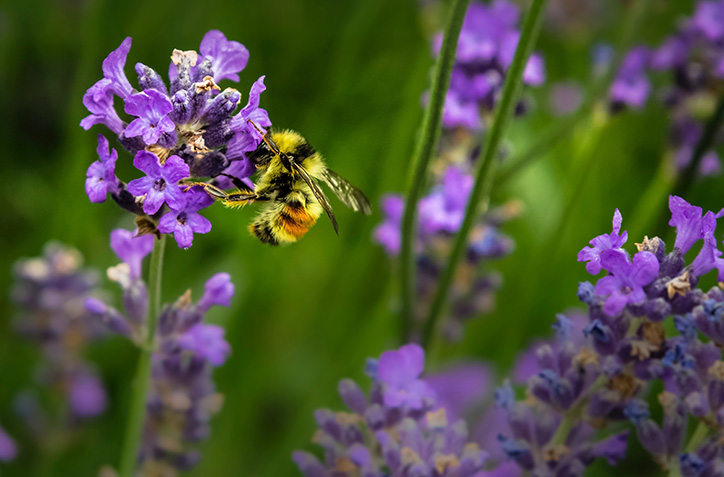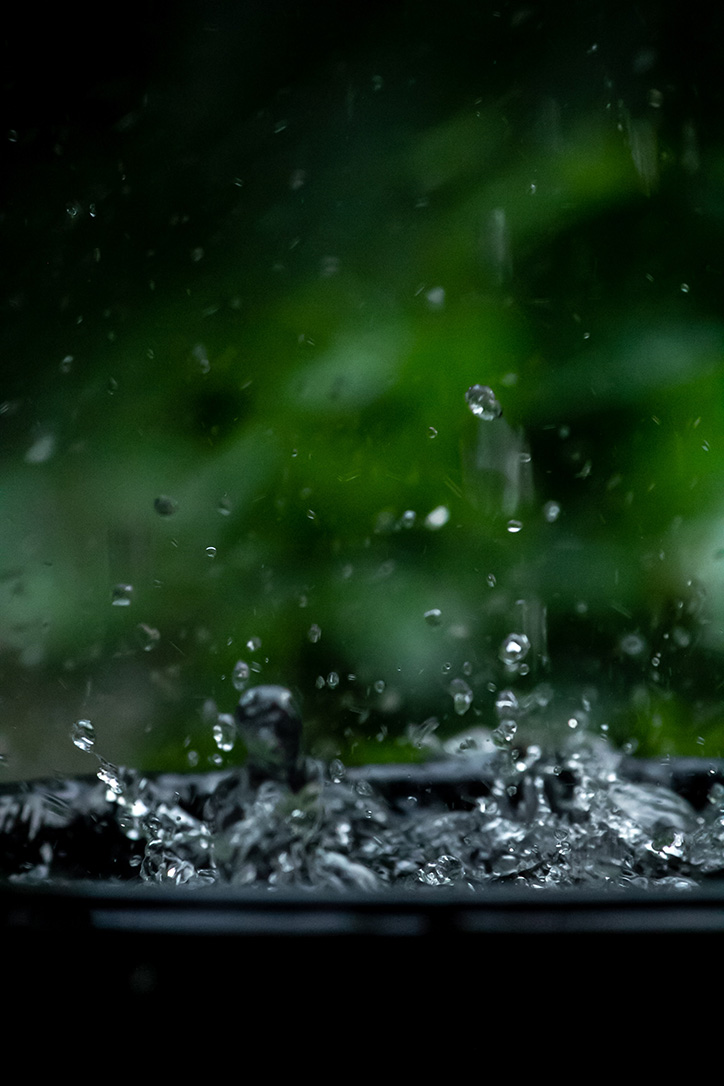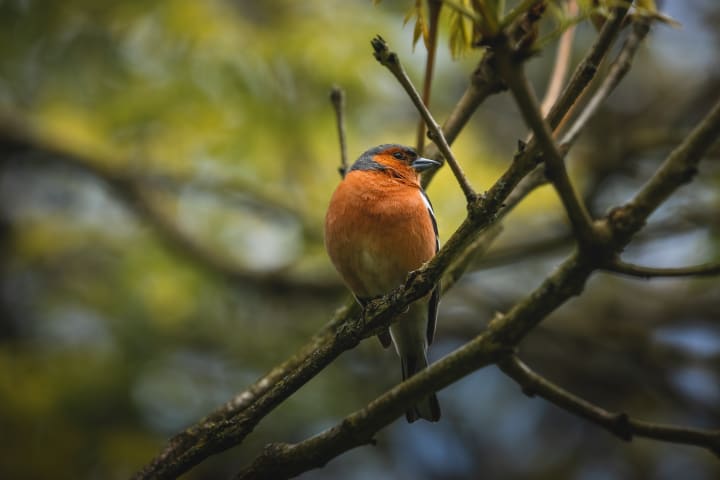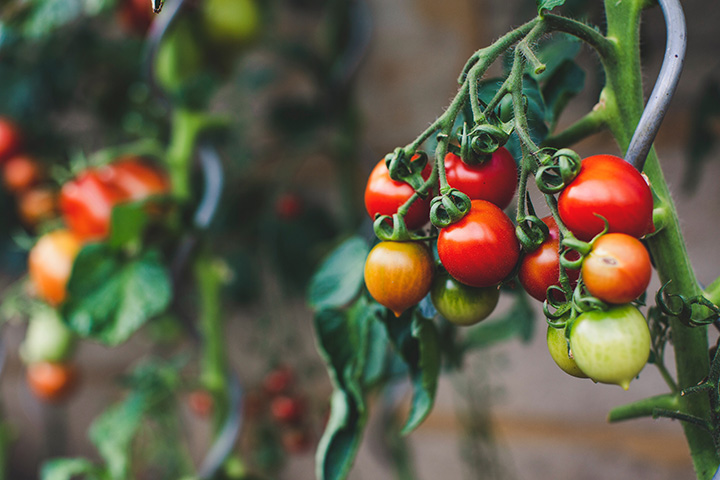Gardening has always been a popular and rewarding pastime, but as we move into 2023, the focus on sustainability and eco-friendliness has never been more important. Creating a sustainable garden not only provides you with fresh produce and beautiful flowers, but also contributes to a healthier environment. In this blog post, we'll explore some essential tips and ideas for creating your very own eco-friendly garden oasis.
Choose Native Plants

Native plants are perfectly adapted to the local climate, soil conditions, and wildlife, making them an ideal choice for a sustainable garden. They require less maintenance and water than non-native plants, which not only conserves resources but also supports the surrounding ecosystem. By choosing native plants for our gardens and landscapes, we create a more harmonious environment that benefits both the plants and the local fauna.
Pollinators, in particular, benefit from native plant species because they have co-evolved with them, resulting in a mutually beneficial relationship. These plants have adapted to the specific needs and preferences of native pollinators, offering them the right types of nectar, pollen, and other resources to thrive. In turn, the pollinators have become efficient at transferring pollen between plants, ensuring successful reproduction and the survival of the plant species. Supporting native plants in our gardens and landscapes helps maintain the natural balance of the ecosystem and provides essential habitat and food sources for pollinators. This is crucial, as many pollinator populations are declining due to habitat loss, pesticide exposure, and climate change. By promoting native plant diversity, we contribute to the overall health of pollinator communities and the essential services they provide for our food systems and environment.
Tip: The Royal Horticultural Society has some great information about british native plants for pollinators
Conserve Water
Water is a precious resource, and conserving it in your garden is vital for both environmental and economic reasons. With climate change leading to unpredictable weather patterns and prolonged periods of drought, it has become increasingly important for gardeners to adopt sustainable practices. Implementing water-saving techniques can help reduce your garden's water consumption, thereby lessening the strain on local water resources and promoting a more sustainable approach to gardening. Furthermore, using water efficiently in your garden can also lower your water bills and contribute to a healthier, more resilient landscape.
One effective way to conserve water is by installing a rainwater harvesting system, which collects and stores rainwater for garden use. This not only reduces the demand for potable water but also makes good use of a free, renewable resource. Additionally, using drip irrigation or soaker hoses can ensure efficient watering by delivering water directly to the roots of your plants, minimizing evaporation and runoff. Another helpful practice is to water your garden early in the morning or late in the evening when temperatures are cooler and evaporation rates are lower. This allows the water to penetrate deeper into the soil, promoting stronger root systems and healthier plants. By adopting these water-saving techniques, you can create a more sustainable garden while still maintaining a beautiful and thriving outdoor space.
Create a Wildlife-friendly Habitat
At the heart of sustainable gardening lies the idea of creating a wildlife-friendly habitat. This involves creating spaces within your garden that encourage wildlife to flourish, thereby contributing to local biodiversity.

Planting a variety of native flowering plants is an excellent starting point. These plants offer a rich source of nectar and pollen for pollinators like bees and butterflies, which play a crucial role in plant reproduction. The diversity of plants also ensures a continuous bloom throughout the growing season, providing pollinators with a constant food source.
In addition to plant life, setting up bird feeders, bird baths, and nesting boxes can encourage birds to visit and inhabit your garden. These installations provide birds with food, water, and shelter, making your garden a hospitable environment for these creatures. Birds not only add beauty and interest to your garden, but they also play a role in pest control and seed dispersal.
Creating small habitats for insects is another effective strategy. By leaving piles of leaves, twigs, and rocks in strategic locations, you provide shelter for a variety of insects. These microhabitats can support creatures like beetles, spiders, and other beneficial insects that contribute to a healthy garden ecosystem.
Practice Organic Gardening
Embracing organic gardening is a commitment to both sustainability and the balance of our ecosystem. A key principle is avoiding chemical fertilizers, pesticides, and herbicides, which can contaminate the environment and disturb the ecosystem's equilibrium.
Organic fertilizers, such as compost or well-rotted manure, are essential in organic gardening. These natural fertilizers nourish the soil, improve its structure, and promote the growth of beneficial organisms. This leads to healthier, more resilient plants and a reduced environmental footprint.
Natural pest control methods offer an environmentally friendly alternative to harmful chemicals. Introducing beneficial insects like ladybirds and lacewings, known as biological control agents, can effectively manage garden pests, eliminating the need for synthetic pesticides and supporting garden biodiversity.
Organic gardening encourages weeding by hand and mulching as natural weed control strategies. Hand weeding is labor-intensive but ensures complete weed removal without harmful herbicides. Mulching with organic materials retains soil moisture, regulates temperature, and suppresses weed growth, contributing to a nutrient-rich environment for plant growth.
Reduce, Reuse, Recycle
Sustainable gardening goes hand in hand with the principles of reduce, reuse, and recycle. By embracing these principles, we can significantly minimize waste, creating a more sustainable and environmentally friendly garden.
One of the most effective ways to recycle in the garden is to start a compost bin. Composting allows you to recycle kitchen scraps and yard waste, turning what would have been waste into nutrient-rich compost. This compost can be used to enrich the soil in your garden, providing a natural, cost-effective, and sustainable alternative to chemical fertilizers.
Reusing or repurposing household items is another key aspect of sustainable gardening. Old containers, pallets, and tires can find a second life in your garden, serving as planters, compost bins, or even garden furniture. This approach not only reduces waste by giving new life to items that might otherwise be discarded but also adds a unique, personal touch to your garden.
Finally, reducing waste is crucial in sustainable gardening. Opting for reusable gardening tools and equipment, rather than disposable ones, is a simple way to minimize waste. Choosing quality tools that will last, maintaining them well, and repairing them when necessary, rather than replacing them, are all practices that can reduce the environmental impact of your gardening activities.
Grow Your Own Food
Growing your own fruits, vegetables, and herbs is a rewarding way to support sustainable living, as it offers a myriad of benefits for both the individual and the environment. By cultivating a home garden, you can enjoy fresher, more nutritious, and flavorful produce that is free from harmful pesticides and other chemicals. This directly contributes to a healthier lifestyle while also reducing your reliance on shop-bought alternatives that often have a larger carbon footprint due to transportation and packaging.
Furthermore, home gardening fosters a greater connection to nature, allowing you to appreciate the intricate process of plant growth and the importance of responsible resource management. As more people embrace this sustainable practice, communities can work together to promote local food systems, reduce waste, and encourage eco-friendly living for generations to come.
Tip: Start small with easy-to-grow plants like lettuce, tomatoes, and herbs, and gradually expand your garden as you gain confidence.
In Conclusion
Creating a sustainable garden for 2023 is an excellent way to contribute to a healthier environment while enjoying the many benefits of gardening. By implementing eco-friendly practices like water conservation, organic gardening, and supporting biodiversity, you'll be well on your way to creating a flourishing, sustainable oasis in your own garden.







